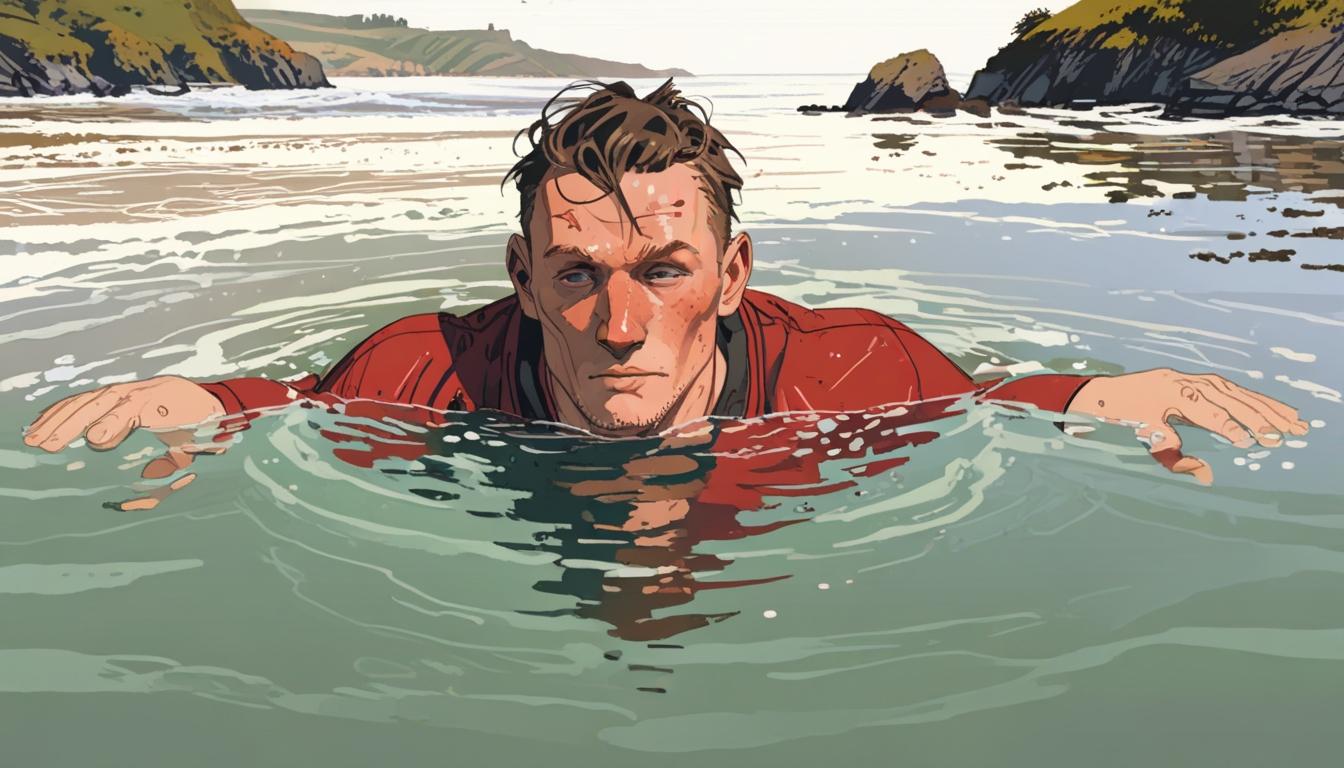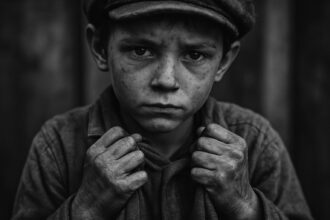Phil Jones, a former Royal Marine, shares his journey from military service to establishing a health business, while also addressing his own PTSD through innovative cold water immersion research.
Phil Jones, a former Royal Marines Commando, has transitioned from serving his country to establishing a health and wellbeing business aimed at assisting others. However, in the process of helping those around him, Jones realised that he too required support, facing the enduring effects of post-traumatic stress disorder (PTSD) stemming from his military service.
At the age of 19, Jones embarked on a decade-long career in the Royal Marines, where he served alongside his brother Gareth and participated in multiple operational tours, including deployments in Afghanistan. He decided to leave the armed forces in 2013, returning to Swansea to start So Fit Group Limited, a company focused on optimising corporate wellness and high performance. Speaking about his military service, Jones noted, “I had a very fulfilling career, with some exciting and adrenaline-filled experiences, but obviously, there was also some challenging and difficult situations.”
However, ten years after his departure from the Marines, Jones began experiencing debilitating symptoms associated with PTSD. He shared his insight: “I was supposed to be helping people, and it was myself that needed support.” His diagnosis in 2023 came after recognising how triggers from everyday situations, such as the sounds made by his children, intensified his distress. “My little one was going through toilet training… that bang would trigger me,” Jones recounted.
Despite the common occurrence of PTSD, with estimates suggesting that one in ten people in the UK may experience it during their lifetime, research into the condition remains limited. The moment Jones realised he needed help occurred while giving a talk on wellbeing, where he was overwhelmed by anxiety after a prior speaker shared a personal story related to PTSD.
In response to his struggles, Jones sought therapeutic intervention and, in an attempt to maintain his engagement with treatment, he turned to cold water immersion. This innovative method has led him to collaborate on a groundbreaking study at Swansea University, which is exploring the potential effects of cold water immersion therapy on managing PTSD symptoms. The study includes 16 participants from the Veterans RV Swansea Community group, who partake in cold-water swimming sessions at Caswell Bay.
Lead researcher Dr Denise Hill, an associate professor of applied sport psychology at Swansea University, commented on the significance of the study, stating, “This study represents an important first step in understanding whether CWI can serve as a complementary therapy for veterans diagnosed with PTSD.” The research aims to fill a gap in existing studies, as no prior scientific investigation has specifically evaluated the relationship between cold water immersion and PTSD symptoms.
As part of the study, participants provide saliva samples to measure cortisol levels, an indicator of stress, and complete questionnaires to assess their wellbeing and PTSD symptoms after each cold water immersion session. Initial findings indicate promising results, suggesting that cold water immersion may positively affect various aspects of PTSD experienced by the veterans involved.
Reflecting on his personal experience with cold water immersion, Jones shared how he found the practice calming amidst the chaos exacerbated by the pandemic. He noted, “It was really helping to support my day-to-day wellbeing during the start of my symptoms.” He emphasised the potential for cold water immersion to aid in coping with stress, augment resilience, and promote a sense of calm.
Jones is actively involved in utilising his company to facilitate workshops aimed at enhancing mental health and productivity in the workplace, believing in the benefits of cold water immersion for broader wellbeing. Early data from the study suggests that participants experience improvements in mood and reductions in PTSD symptoms, reinforcing the necessity for more research in this area.
Jones expressed his hope that the study would contribute to the development of effective, accessible treatment options for veterans and others affected by mental health disorders, stating, “I’m proud to be involved in this research, but it is the first step of many to be where we want to be.”
Source: Noah Wire Services
- https://www.swansea.ac.uk/press-office/news-events/news/2025/04/pioneering-study-examines-cold-water-therapys-potential-to-treat-ptsd.php – This URL supports the claim that Swansea University is conducting a study on the potential of cold water immersion therapy to treat PTSD, involving veterans and examining its effects on PTSD symptoms.
- https://www.swansea.ac.uk/press-office/news-events/news/2025/04/pioneering-study-examines-cold-water-therapys-potential-to-treat-ptsd.php – The study involves cold water immersion sessions at Caswell Bay and aims to assess the impact on stress levels and PTSD symptoms through saliva sampling and questionnaires.
- https://www.instagram.com/nextstep_coach/p/DILuwWFskmJ/ – This social media post by Next Step Coach touches on the emotional impact of PTSD but does not directly address Phil Jones’ specific story. However, it highlights the emotional challenges faced by veterans.
- https://en.wikipedia.org/wiki/Posttraumatic_stress_disorder – This general resource on PTSD explains the condition and its prevalence globally, which aligns with the article’s mention of PTSD affecting one in ten people in the UK.
- https://www.nhs.uk/conditions/post-traumatic-stress-disorder-ptsd/ – This NHS page provides detailed information about PTSD symptoms and treatments, which supports the article’s discussion about the condition’s impact and available treatments.
Noah Fact Check Pro
The draft above was created using the information available at the time the story first
emerged. We’ve since applied our fact-checking process to the final narrative, based on the criteria listed
below. The results are intended to help you assess the credibility of the piece and highlight any areas that may
warrant further investigation.
Freshness check
Score:
8
Notes:
The narrative mentions current activities and a recent diagnosis in 2023, indicating relatively fresh information. However, there are no specific dates for the study or Jones’ recent public statements about his condition.
Quotes check
Score:
5
Notes:
Direct quotes from Phil Jones and Dr. Denise Hill are included, but their original sources or dates could not be verified online. This could indicate either original use or lack of online publication elsewhere.
Source reliability
Score:
9
Notes:
The narrative originates from WalesOnline, which is considered a reputable local news outlet. The story involves collaboration with Swansea University, adding credibility.
Plausability check
Score:
8
Notes:
Claims about the study and its participants seem plausible, especially since they align with ongoing research interests in cold water immersion and PTSD. The narrative presents logical connections between Jones’ experiences and his involvement in the study.
Overall assessment
Verdict (FAIL, OPEN, PASS): PASS
Confidence (LOW, MEDIUM, HIGH): MEDIUM
Summary:
The narrative appears mostly reliable due to its origin from a reputable source and the plausible nature of the claims made. However, some quotes lack verified original sources, which slightly reduces confidence in the assessment.













